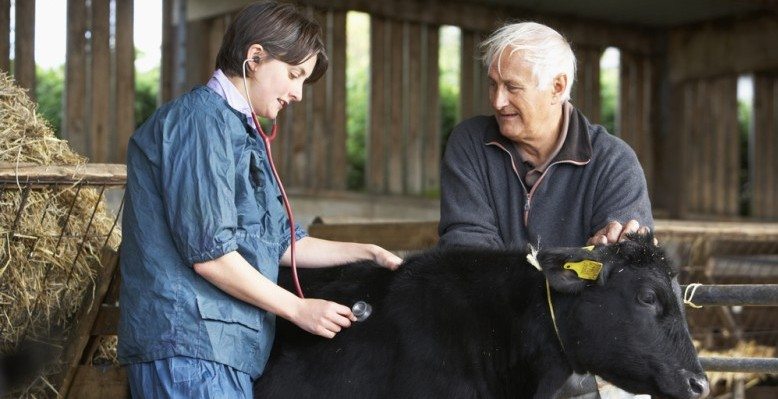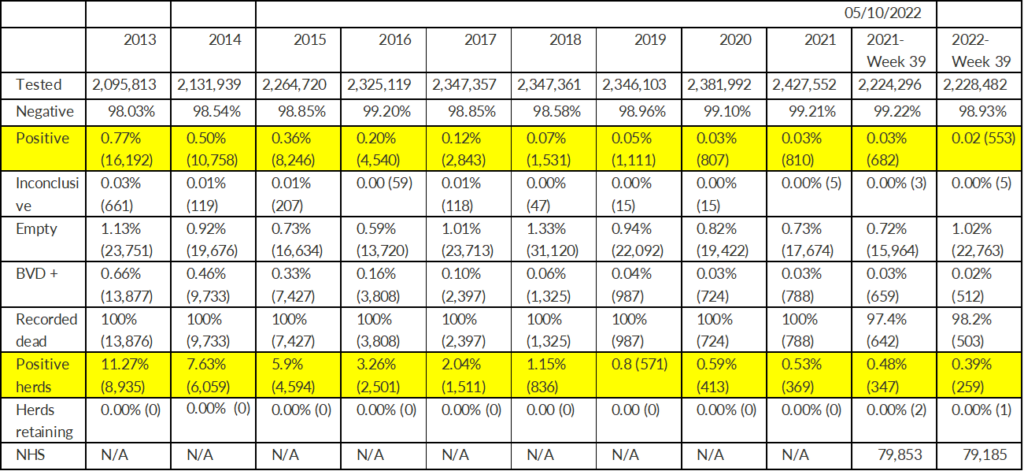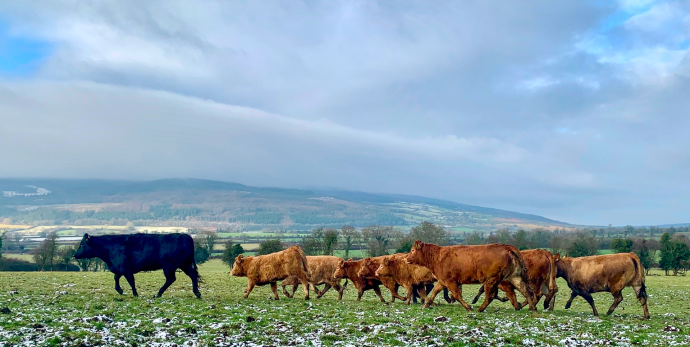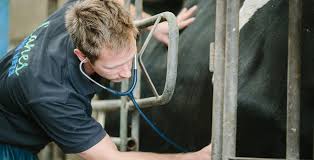Animal Health Reports
Animal Health Council Report October 2022

TB
Latest bovine TB Statistics

- Progress is being made in discussions on the TB programme. The objectives of the discussions are to reduce the incidence of the disease while also reducing the costs burden on farmers. Agreements on financing the programme have yet to be reached.
EU Required 30 Day Pre/Post Movement TB Test
- One of the most significant issues relates to the EU Animal Health Law requirement for pre/post movement test for all animals that are over 6 months tested and moving from herds that are over 6 months since last test.
- This requirement was due to come into force at the beginning of this year. IFA objected to this measure from the outset.
- We lobbied against the measure in Brussels and Dublin. We highlighted the impact it would have on the trade of cattle through marts and from farm to farm.
- Through the TB Implementation a compromise has now been reached where the requirement for a pre/post movement test will only apply to all cows and male animals over 36 months of age which have not been tested in the previous 6 months or are moving from herds that are 6 months since their last test.
- Over 2.6m animals over 6 weeks of age move through marts or from farm to farm each year. This compromise reduces the numbers of animals that may require a test to approximately 170k, based on the most recent analysis by the Department of Agriculture
- The proposed application of this requirement effectively means it would only be all cows and male animals over 36 months moving to a farm for further breeding that would require a test. Cull cows and cull male animals over 36 months (bulls) due to the holdings they move to and the length of time they would ordinarily spend on these holdings before slaughter would avoid any test requirement.
- With over 60% of all TB reactors identified being cows the measure applies to the highest TB risk group. The implementation of this requirement is also being further deferred until February 2023.
- The substantive issue to be resolved is liability to pay for this EU test requirement. From the outset IFA have been clear that farmers should NOT have to pay for this test. IFA have an agreement with the Government and the Department of Agriculture that farmers will only pay for one herd test a year and at no shorter interval than 10 months. Any other legally required test must be paid for by the Department of Agriculture. This remains IFA’s position affirmed by the National Animal Health Committee and our National Council on September 14th.
Wildlife
- IFA have called for a doubling of resources in the Wildlife Control Programme and more effective implementation of the programme on the ground. Progress has been made in this area over the past 2 years with additional sets identified and additional removal and vaccinations taking place, this must be built on and an effective wildlife programme operated in all counties in the country. DAFM have proposed to invest over €3m additional funding in the programme which will include the provision of an additional 26 FRS operatives. The programme will also be carried out in advance of major infrastructural works taking place.
Irish Deer Management Forum
- The Deer Management Forum has been re-established and Teddy Cashman has been announced as Chairman. This group must commence work immediately to address the unacceptable levels of deer that are encroaching on our farmland, spreading disease, eating grass, damaging fences and creating a real danger for motorists on our rural roads.
Reducing impact of TB controls & rates for support schemes
- A key tenant of the TB programme is the levels of support available to farmers impacted by controls and this has been a critical aspect of IFA policy for the duration of the TB Forum process.
Purchase In Facilitation
- Farmers who lose animals in a TB breakdown are now allowed replace those animals subject to the completion of a Risk Management Plan. This is significant as it allows farmers continue to farm at the numbers of animals they would have planned to keep before the TB episode.
- It is proposed that these animals will be eligible for live valuation compensation should they go down with TB during the outbreak and the herd will retain eligibility for income supplement.
Income Supplement & Depopulation Grant
- Despite the facilitation to purchase in there will be farmers unable to do so and who will be exposed to income loss on their farms. IFA have sought an increase in these rates to reflect the actual levels of income loss associated.
- DAFM have put forward proposals for higher rates in the income supplement and depopulation grant schemes, with eligibility commencing on the date of restriction and paid on for partial months restricted.
- The proposal also includes a maximum payment on 200 animals in the scheme and for a maximum period of 12 months where the herd has been allowed purchase in animals.
- These rates must be based on an agreed methodology that establishes the actual level of loss incurred and the limits proposed must be reconsidered.
Hardship Grant
- For the vast majority of farmers, it is the actual restriction for TB that causes most difficulty when forced to maintain additional animals, IFA have sought significant changes to the Hardship Grant scheme to offset this impact including higher rates and the removal of the off-farm income impediment to eligibility in the scheme. DAFM propose paying the scheme from date of restriction in the eligibility period and increasing the rates for the three categories of animals, dairy cows, suckler cows and other animals to better reflect the cost of maintaining these animals over the winter.
- Removing the off-farm income impediment will be a key amendment to this scheme.
Contract Rearing
- Contract rearing is now recognised in TB programme and movements to and from breeding and rearing farms are facilitated in TB breakdowns with live valuation and income supplement compensation entitlements maintained for the herd and animals.
- Live valuation will be paid on the animals moved should they go down with TB in the breakdown and income supplement compensation entitlement will be retained for the herd.
Earlier removal of TB reactors
- IFA have consistently raised the need to expedite the removal time of TB reactors from farms. DAFM have proposed to offer a voluntary book value where one animal is to be valued on the farm offering the quality 2 price.
- In order to consider this proposal IFA have set out that it must include a guaranteed removal of the animal inside 7 days of the date of the TB test from the farm.
Funding Proposals
- DAFM have proposed any additional expenditure in the Income Supplement Scheme, Depopulation Grant and Hardship Grant Schemes be recouped retrospectively through the Bovine Disease Levy system from farmers.
- DAFM have outlined all proposals are subject to DPER approval.
IFA Position
- IFA are prepared to consider the proposals put forward by DAFM provided;
- The Department of Agriculture pay for the New EU required 30-day pre movement test, which will effectively only apply to all cows and male animals over 36 months moving to breeding herds.
- The Department of Agriculture must provide the additional financial resources required to implement an effective Wildlife Control Programme throughout the country
- Any additional monies contributed by farmers must be used solely for the purpose of increased income supports for farmers experiencing TB controls on their farms
BVD
Latest BVD Weekly Figures

- IFA support the objective to reach BVD Free Status, recognising the benefits and the direct investment of over €100m of farmers to-date in the programme.
- IFA have outlined these calculations to AHI and DAFM.
- IFA have set out the keys points that must form the basis of the BVD programme from 2023 onwards:
- DAFM must fund the BVD programme from 2023 onwards
- Once freedom is achieved, the testing and surveillance which will be required to prove on-going freedom must be paid for in full by the Department of Agriculture, which is consistent with the publicly stated Department of Agriculture policy of cost and responsibility sharing in disease control. It is now time for the Department to make their contribution towards testing in this programme.
- The testing approach that will be implemented must provide a high level of early case detection to protect the status achieved by farmers.
- Where cases are found and controls imposed on farmers to avoid any further spread these farmers must be supported in full for the cost and impact of these controls.
Maps of BVD cases 2013 and 2022


Veterinary Medicines
- IFA continue to highlight the key issues with the regulations which include anthelmintics becoming POM in 2022, prophylactic use of antibiotics will be banned (e.g. Blanket Dry Cow Treatment), a prescription for antibiotics will only be valid for 5 days and the issue of who can prescribe.
- Following significant concerns being raised by IFA, Licensed Merchants and veterinary pharmacies the Minister decided to defer implementation of the prescribing requirement for anti-parasitic products until December 1st 2022. IFA continue to call for meaningful engagement with key stakeholders to resolve the issue.
- This deferment must provide an opportunity to develop an approach that allows farmers avail of maximum competition in the supply chain, and that prescribing is not influenced by commercial interests.
- IFA made a submission on Veterinary Medicinal Products, Medicated Feed and Fertilisers Regulation Bill 2022
- The substantive point raised in the bill related to the categorisation of Antiparasitic Products and as result brought into focus the prescribing process for these products. The current draft of the Bill facilitates only registered veterinary practitioners in prescribing antiparasitic products.
- This approach removes competition from the supply chain for farmers and critically removes a significant stakeholder from proactively supporting National efforts to promote better and more targeted usage of antiparasitic products.
- The demise of licensed merchant stores and veterinary pharmacies that will occur as a result will have an even more profound impact on the rural communities and the farmer’s they serve due to the loss of economic activity in these regions.
- There will be a two-tier system created by this Bill in its current format on the island of Ireland in relation to sourcing antiparasitic products, placing Irish farmers at a competitive disadvantage while creating strong incentives for illegal trade in these products.
- The Bill must facilitate prescribing for antiparasitic products by Qualified Persons. This can be achieved by recognising the procedures currently in place where Responsible Persons have fulfilled this function in National Law since 2007 under accreditation from the Department of Agriculture which meets the criteria set out in the EU Veterinary Medicines Regulation.
- The sanctions for non-compliance with measures in this Bill must be proportionate and farmers cannot be accountable for or sanctioned where prescribers or suppliers of veterinary medicines have failed to comply with their obligations in this area. Farmers are end users and dependant on prescribers and suppliers to meet their obligations, as farmers we do not have oversight of these service providers, this is the responsibility of DAFM and therefore we cannot be liable for their failures to comply with their legal obligations.
National Veterinary Prescription System (NVPS)
- The Veterinary Medicinal Products, Medicated Feed and Fertilisers Regulation Bill 2022 which was mentioned previously also refers to the NVPS.
- The proposal for all veterinary medicine prescriptions to be issued on line through the NVPS raises significant farmer concerns in relation to the level and type of data that will be stored relating to each individual farm and the accessibility of that data by DAFM and others.
- This information is private farmer data and the Bill cannot seek to compile and use this information in a format that provides ease of access to individual identifiable farmer medicine usage information in a more detailed or comprehensive way than is already available. This has the potential to be used by DAFM and industry to categorise farms and/or animals for potential inspections and/or price penalties on animals or produce from farms.
- The system has advantages but IFA have raised data concerns with DAFM.
- This system is not sufficient to address the issues with competitive supply of anti-parasitic products and is not user friendly in its current capacity.
VAT Rate for Non-Oral Vaccines
- IFA have welcomed progress by the Department of Agriculture towards reducing the VAT rate on non-oral vaccines to 0%.
- The IFA Animal Health Committee has campaigned for the VAT rate on non-oral vaccines to be reduced to 0% for a number of years and the objective to provide this from 2024 is the first time a target date has been set and it’s important this objective is delivered on.
- The current VAT rate is 23%. With farmers spending in excess of €40m annually on vaccines alone, this could result in savings of over €10m for farmers.




